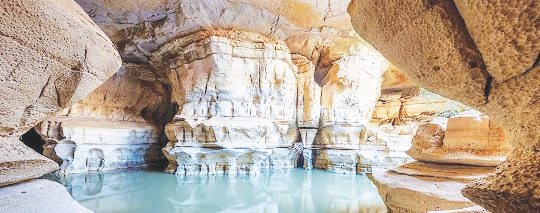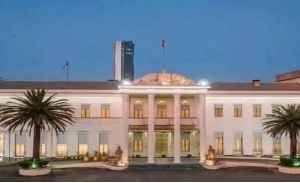
Halal tourism is rapidly transforming the travel industry by catering to the specific needs of Muslim travelers. This trend prioritizes access to halal food, prayer facilities, and gender-segregated accommodations, allowing Muslims to explore the world without compromising their faith. As the Muslim middle class rises and global awareness increases, the halal travel market was projected to exceed 220 billion USD by 2020. With more Muslim travelers seeking halal-friendly destinations, the tourism industry must adapt to meet their unique needs, fostering cultural sensitivity and respect for Islamic values while unlocking new opportunities in this growing market.
In 2021, Muslims worldwide spent a total of 2.29 trillion USD across various sectors, including food, pharmaceuticals, cosmetics, fashion, travel, and media/recreation. This substantial spending reflects the significant growth potential of the global Muslim market, with projections suggesting it could reach approximately 2.8 trillion USD by 2025.
The halal industry is experiencing remarkable growth, particularly in halal tourism, which specifically caters to Muslim travelers seeking holiday services aligned with Islamic principles. In 2022, spending by Muslims on halal travel was estimated at around 283 billion USD, with approximately 160 million Muslim travelers.
While halal tourism primarily targets Muslim consumers, its appeal is increasingly recognized by non-Muslims who appreciate its emphasis on quality, ethical practices, and social responsibility. As misconceptions about halal products being exclusive to Muslims fade, new opportunities arise for both markets.
The term “halal,” derived from Arabic, signifies anything permissible in Islam and encompasses a broad framework governing various aspects of life; including consumption and social conduct. In the halal industry, the focus is on ensuring that products and services align with Islamic guidelines, emphasizing criteria such as animal welfare, hygiene, and health safety, as outlined by various halal certification organizations. The concept of “Halalan-Toyyiban” extends beyond mere compliance with Islamic law; it emphasizes quality and ethical standards – the production of food that is not only Halal (permissible) but also pure and wholesome). The increasing acceptance of halal practices among non-Muslim consumers underscores its broader appeal, driven by shared values of social responsibility and sustainability.
Halal tourism, also known as Islamic or Muslim-friendly tourism, represents an emerging sector within the global tourism industry. Grounded in Islamic principles, it ensures that travel experiences comply with Shariah law. The UN World Tourism Organization (UNWTO) emphasizes key elements such as target consumers, destinations, and services in defining tourism, aligning with various scholarly interpretations of halal tourism. This form of tourism reflects the objectives of “Maqasid al-Shariah,” aiming to preserve faith, life, intellect, wealth, and lineage. By promoting responsible tourism practices, halal tourism serves not only Muslim travelers but also encourages broader sustainability values.
The importance of sustainable tourism highlights the need to prioritize environmental, economic, and socio-cultural impacts to protect biodiversity and promote responsible travel. This approach aligns with the Sustainable Development Goals (SDGs) set by the United Nations, using visitor-generated revenue to conserve tourist sites and habitats. According to the UNWTO, sustainable tourism effectively meets tourist needs while safeguarding host regions and balancing economic, social, and ecological demands.
Established in 2015 by all 193 UN member states, the Sustainable Development Goals (SDGs) comprise 17 goals aimed at fostering global progress. Halal tourism emerges as a vital contributor to these goals, intertwining economic growth with ethical practices:
- Good Health and Well-Being (SDG 3): Halal tourism emphasizes corporate social responsibility, ensuring the provision of healthy, halal-compliant food and services.
- Gender Equality (SDG 5): Halal tourism initiatives, such as female-only hotel properties and dedicated services for women, contribute to a more equitable society.
- Decent Work and Economic Growth (SDG 8): The halal travel industry generates employment and fosters economic stability, highlighting the industry’s potential for sustainable growth.
- Responsible Consumption and Production (SDG 12): Halal tourism advocates for responsible consumption, promoting cleanliness, hygiene, and animal welfare.
Ethiopia, the first African nation to embrace Islam, boasts a rich Islamic heritage that positions it uniquely for halal tourism. Although it may not yet be recognized as a major halal destination, the country’s historical and geopolitical significance provides a competitive edge in attracting Muslim tourists. The expanding global halal tourism market, fueled by a growing middle class and an increase in Muslim-friendly services, suggests that Ethiopia can tap into this lucrative industry.
Several key factors position Ethiopia as a premier destination for halal tourism. The country’s historical significance as the land of the First Hijra, where the ancient city of Axum welcomed early Muslim migrants, creates a deep connection that resonates with Muslim tourists. Ethiopia is also home to notable figures in Islamic history, such as Bilal, the first caller to prayer, enriching its cultural narrative.
Additionally, Ethiopia boasts a rich cultural heritage, featuring numerous Islamic sites, including the first mosque built by the Sahabas in 615 and the walled city of Harar, recognized as the fourth holiest city in Islam. Its strategic geopolitical position serves as a gateway for travelers from Muslim-majority countries, enhancing its attractiveness as a halal tourism hub.
With a substantial Muslim population in a country of over 120 million, Ethiopia has a robust domestic market for halal tourism. This growing demographic provides a strong foundation for developing and promoting halal-friendly services and experiences.
Ethiopia offers a wealth of opportunities for halal tourism, highlighted by notable sites:
– Al-Nejashi Religious and Historic Sites: Home to the first mosque in Africa, this site attracts halal-conscious visitors interested in its rich history.
– The Ancient Walled City of Harar: Known for its ancient mosques and vibrant markets, Harar is a hub of Islamic learning and culture.
– The Palace of Aba Jifar: This traditional wooden palace showcases the rich cultural heritage of the people and reflects the historical significance of the Jimma Kingdom.
– The Sof Omar Cave: One of Africa’s most spectacular underground caverns, this cave holds significant religious importance and offers eco-tourists a chance to explore nature and history.
– Erta Ale: This active volcano, known for its persistent lava lake, provides adventurous travelers with a unique experience beyond traditional tourism. Together, these factors and attractions make Ethiopia an emerging and promising destination for halal tourism.
Despite its potential, Ethiopia faces significant challenges in developing halal tourism. Among others, a lack of expertise within the Ethiopian tourism sector regarding halal practices complicates marketing efforts coupled with the threat of terrorism often misattributed to Islam, further impacts perceptions and traveler safety.
Ethiopia’s rich Islamic heritage, historical significance, strategic location and growing domestic demand create a promising landscape for halal tourism. By leveraging these unique assets and addressing the specific needs of Muslim travelers, Ethiopia can position itself as a leading destination for halal tourism in Africa and beyond. While establishing a vibrant halal tourism sector is fraught with challenges, the potential rewards are substantial. By fostering understanding and collaboration, promoting awareness of its Islamic heritage, and ensuring that tourism infrastructure meets halal standards, Ethiopia can unlock new avenues for economic growth and cultural exchange. This approach will not only attract international visitors but also empower local communities, making halal tourism a vital component of Ethiopia’s future.
Eskinder Abdi can be reached at eskewab@gmail.com.
BY ESKINDER ABDI
THE ETHIOPIAN HERALD FRIDAY 25 OCTOBER 2024




